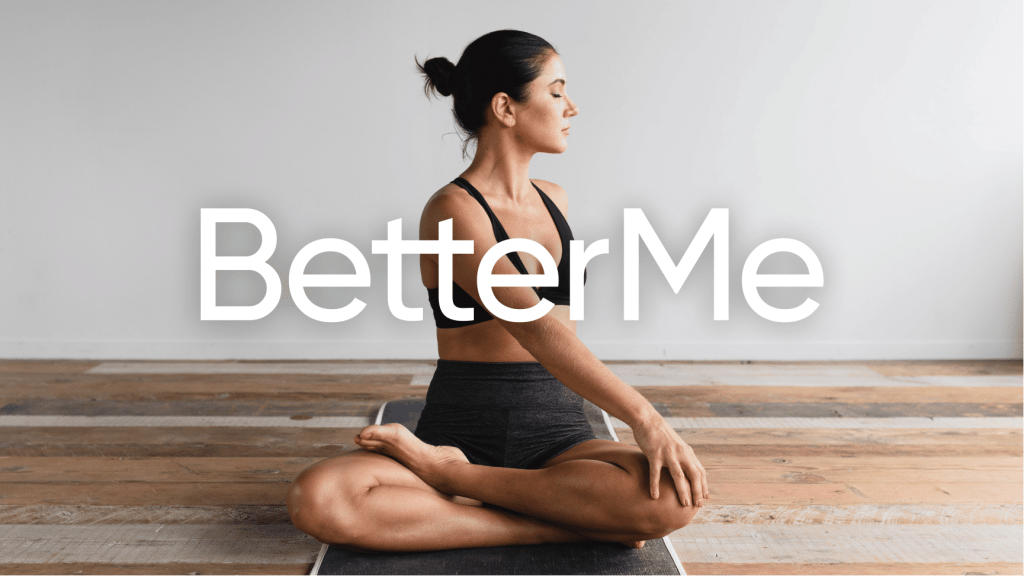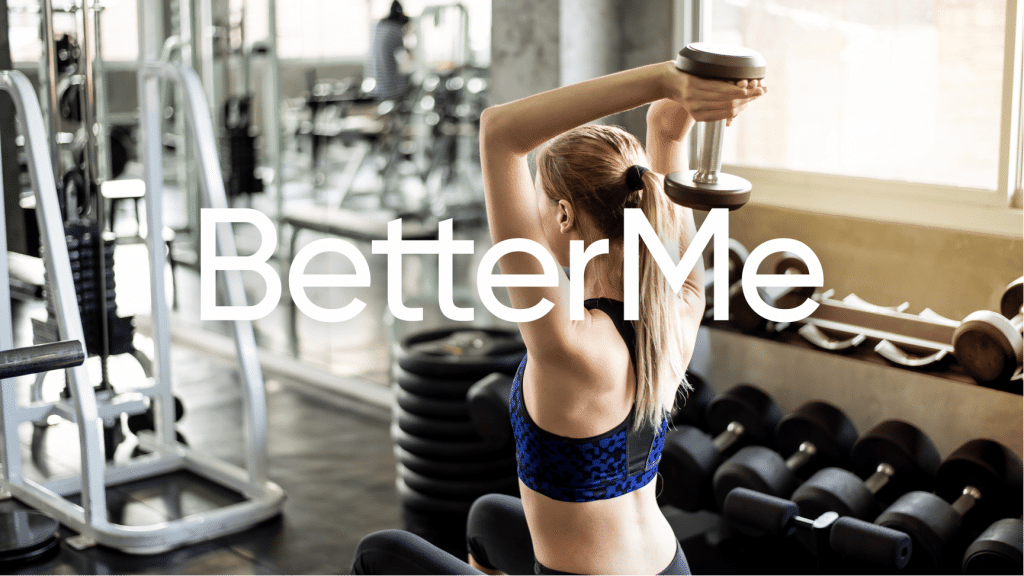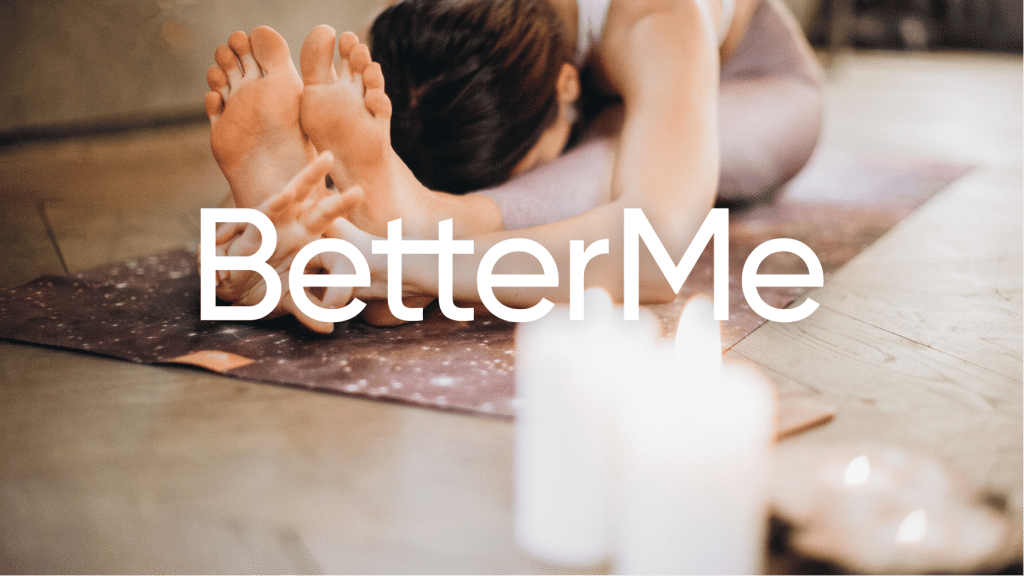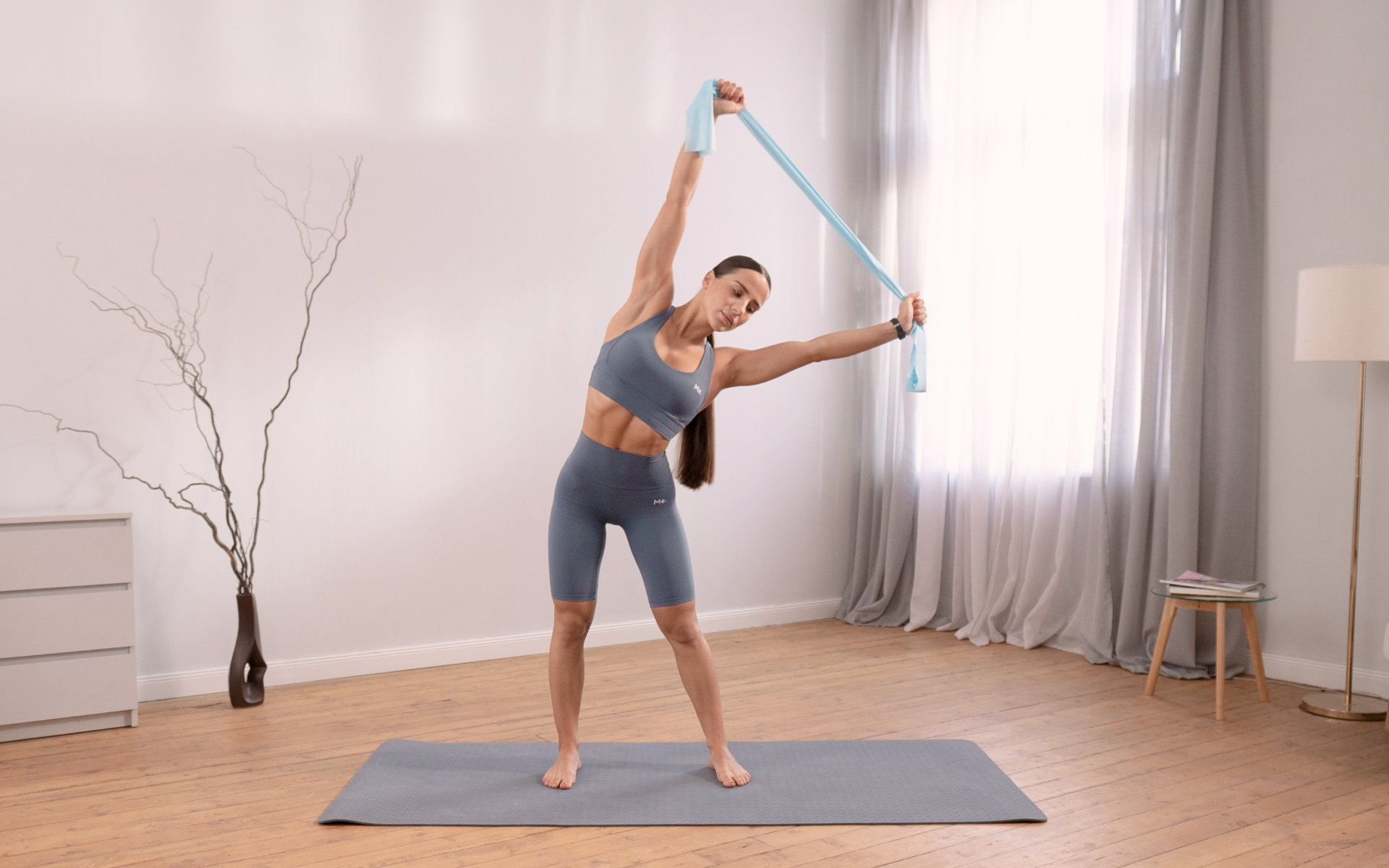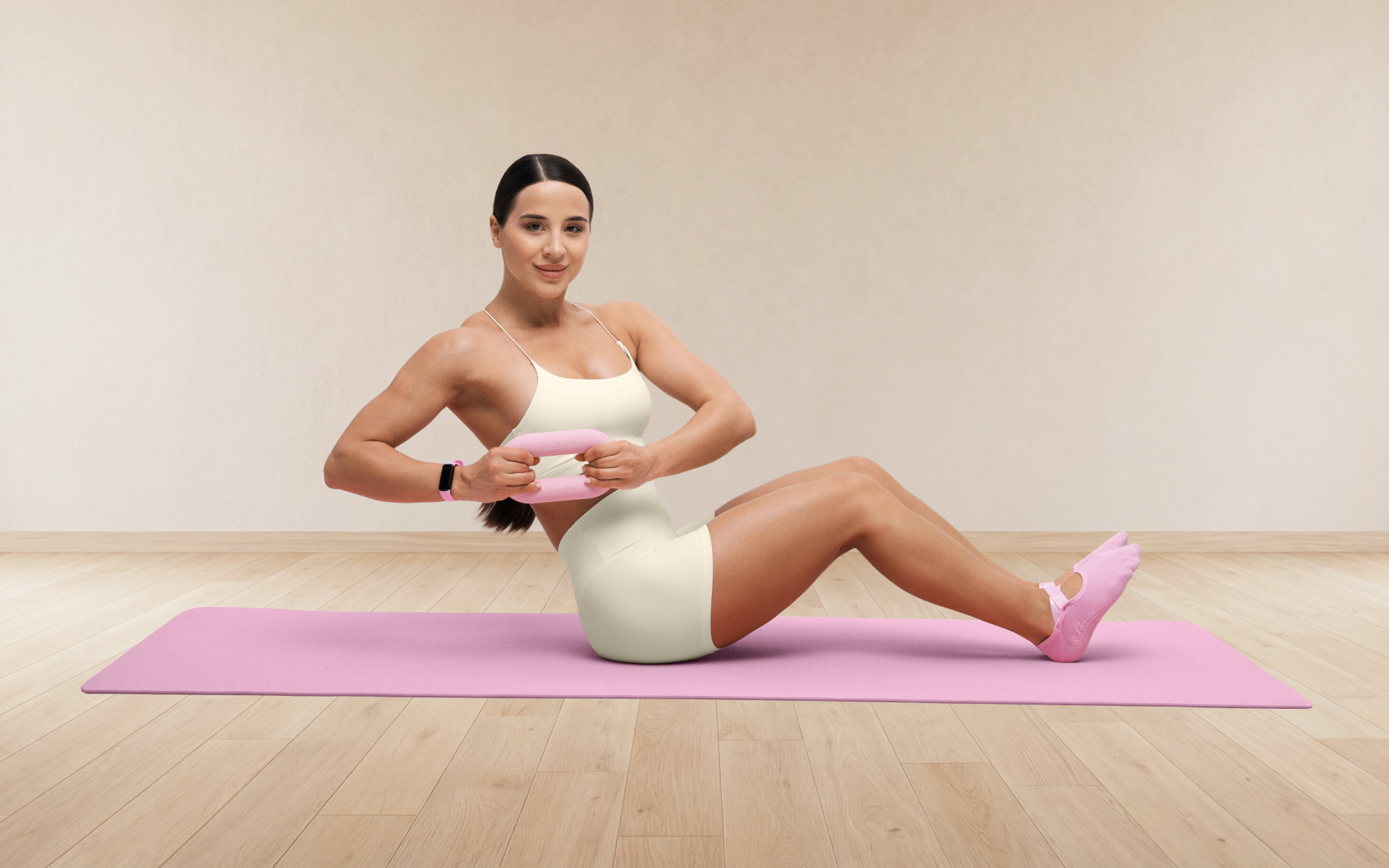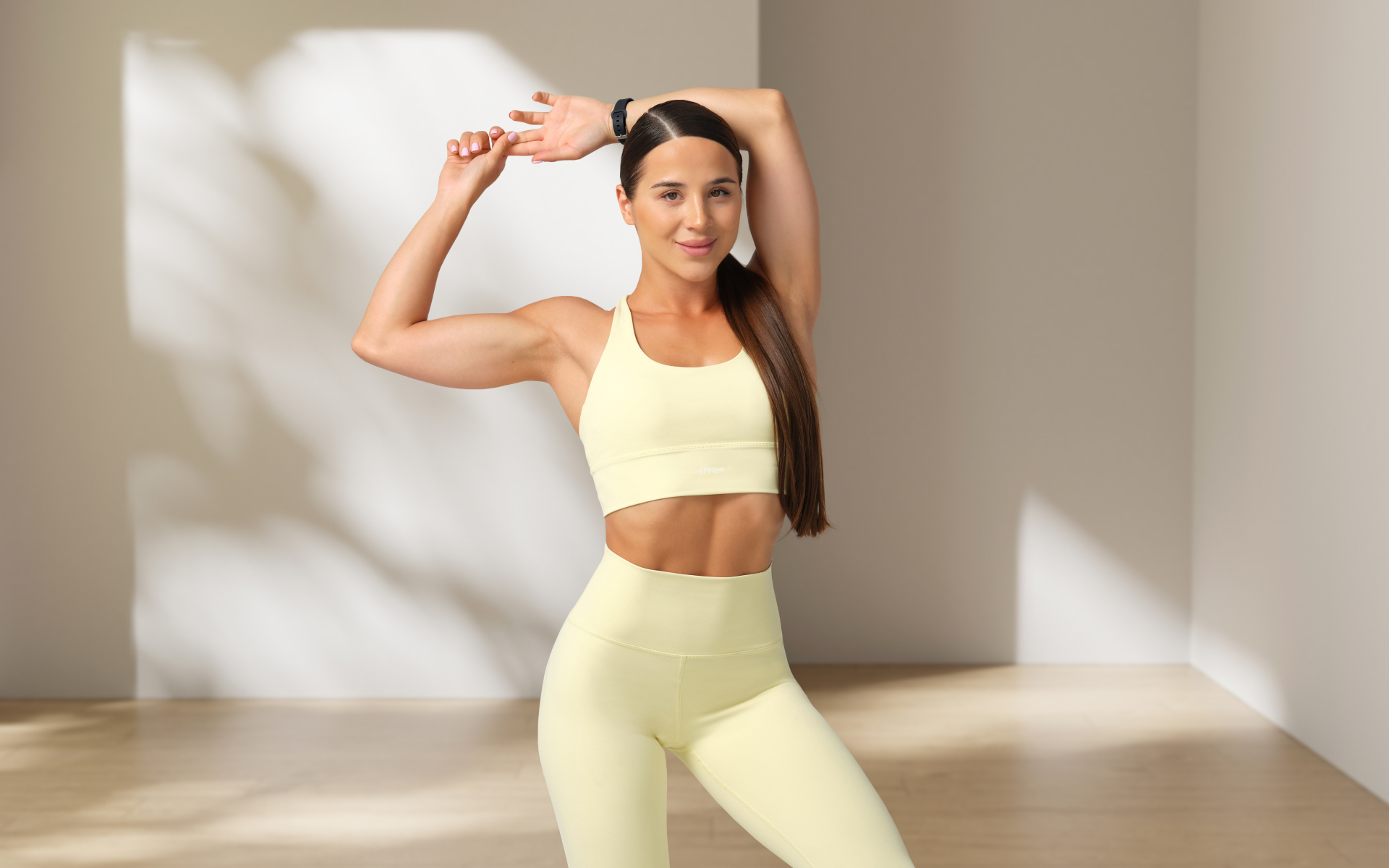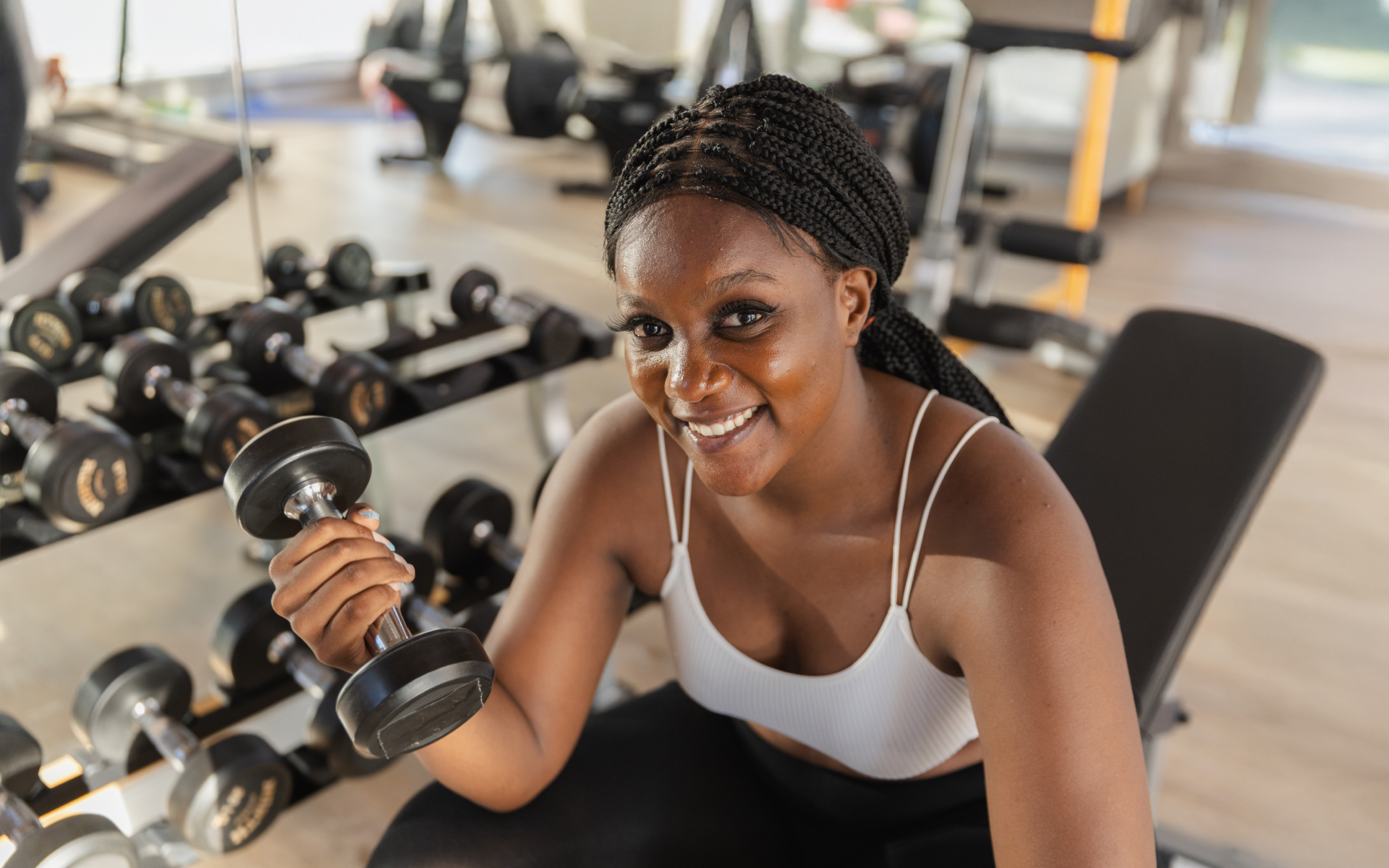There you are, about to say yes to the dress (or suit), but it’s just a little tight around the middle. Or maybe you’ve already gotten the gown and you’re starting to freak out about how you’ll look in it come wedding day. As you frantically look for a wedding workout plan, you happen upon this article.
Get your personalized
meal plan!
Here’s the thing: you don’t need to go on a crash diet or spend countless hours at the gym to look great on your big day. But you do need to be strategic about your fitness routine in the months leading up to the wedding.
Know this: the most sustainable way to get in shape is not with restrictive diets or grueling workouts, but by making simple changes to your lifestyle. And that’s exactly what we’re going to show you how to do.
In this wedding workout plan, we’ll give you a fitness and nutrition roadmap to help you slim down, tone up, and feel your best on your big day—and beyond.
Ready to get started? Let’s go!
How Long Before My Wedding Should I Start Working Out?
Ideally, you should start thinking about your fitness routine 3-6 months before your wedding day. This gives you enough time to make meaningful changes to your body, without putting too much stress on yourself.
That said, it’s never too late to start working out! If you’re reading this a month or two before your wedding, don’t panic.
According to the Centers for Disease Control and Prevention (CDC) even modest weight loss can have big benefits. Losing 5% to 10% of your body weight can improve your blood pressure, cholesterol, and blood sugar levels (10).
And while you still might have to make some adjustments to your outfit, you’ve set the stage for long-term success by getting started on a healthier lifestyle.
How Do I Prepare My Body For My Wedding?
Regardless of how much time you have left for your big day, you want to look and feel your best when you walk down the aisle. The best way is by making sustainable changes to your lifestyle. This means eating healthy, nutritious foods and exercising regularly (16).
It’s also important to focus on the whole you—not just your physical appearance. You’ll take care of your mental and emotional health by getting enough sleep, managing stress, and staying connected to your loved ones (2).
Read More: Home Workout Plan With Dumbbells – Build Muscle Strength At The Comfort Of Your Homes
In the weeks leading up to your wedding, there are a few things you can do to prep your body:
1. Have A Wedding Workout Plan
Physical activity is by far the best way to slim down and tone up. What’s more it can improve your mood and help you stay grounded during the wedding planning process (12).
The CDC recommends that adults get at least 150 minutes of moderate-intensity aerobic activity (like brisk walking) or 75 minutes of vigorous aerobic activity (like running) every week (9). Add strength training to the mix 2-3 times per week and you’ll see even more benefits.
To get started, try this wedding workout plan 3 months that works for both men and women:
First Four Weeks
As a beginner, you’ll want to start slow and gradually increase your intensity. The goal is to workout 3-4 times per week, for 30-45 minutes at a time.
Week 1 (2 strength + 2 cardio days):
- Day 1: 30 minutes of cardio (treadmill, elliptical, swimming)
- Day 2: Lower body workout ( 2-3 sets of 10-12 reps of squats, lunges, deadlifts and glute bridges)
- Day 3: 30 minutes of cardio
- Day 4: Upper body workout (2-3 sets of 10-12 reps of pushups, rows, overhead presses and triceps dips)
Week 2 (2 strength training + 2 cardio days)
- Day 1: 30 minutes of cardio (treadmill, elliptical, swimming)
- Day 2: Lower body workout ( 2-3 sets of 10-12 reps of squats, lunges, deadlifts and glute bridges)
- Day 3: 30 minutes of cardio
- Day 4: Upper body workout (2-3 sets of 10-12 reps of pushups, rows, overhead presses and triceps dips)
Week 3 (2 strength training + 2 cardio days)
- Day 1: 30 minutes of cardio (treadmill, elliptical, swimming)
- Day 2: Lower body workout ( 2-3 sets of 10-12 reps of squats, lunges, deadlifts and glute bridges)
- Day 3: 30 minutes of cardio
- Day 4: Upper body workout (2-3 sets of 10-12 reps of pushups, rows, overhead presses and triceps dips)
Week 4 (2 strength training + 2 cardio days)
- Day 1: 30 minutes of cardio (treadmill, elliptical, swimming)
- Day 2: Lower body workout ( 2-3 sets of 10-12 reps of squats, lunges, deadlifts and glute bridges)
- Day 3: 30 minutes of cardio
- Day 4: Upper body workout (2-3 sets of 10-12 reps of pushups, rows, overhead presses and triceps dips)
Next Four Weeks
At this point, you should have a good grasp of the basics and be able to increase your intensity. Apply the principle of progressive overload—meaning, you challenge your body in new ways as you get stronger (11).
This could mean adding weight to your lifts, doing more reps, or increasing your cardio duration and intensity.
Based on the workout above, you might decide to have a 45-minute cardio day instead of 30 minutes, or do 3 sets of 12-15 reps for your strength training exercises. Choose a weight that feels challenging but not impossible to lift.
If you’re feeling ambitious, add an extra day of working out to your schedule. But don’t feel like you have to do this—listen to your body and do what feels right.
If you wish to free yourself from all the extra pounds that have been weighting you down for way too long, start using the BetterMe app and overhaul your entire life!
Final Four Weeks
As you enter the final month before your wedding, it’s time to focus on honing your skills and perfecting your form. This will help you avoid injuries and maximize your results.
If you’ve been following the workout plan so far, you should be in good shape and ready to ramp things up a notch. At this point, you might want to consider working with a personal trainer or taking a group fitness class to push yourself further.
Your goal should be to workout 4-5 times per week, for 45-60 minutes at a time. This could include a mix of strength training, cardio, and HIIT (high-intensity interval training).
HIIT is a great way to torch calories and improve your cardiovascular health (5) (8). For HIIT, you alternate between periods of all-out effort and active recovery. For example, you might sprint for 30 seconds, then walk for 60 seconds. Repeat this cycle for 10-15 minutes.
As you’re near the big day, you might not have enough time in your increasingly busy schedule to fit in a full workout. That’s okay! Just do what you can and don’t beat yourself up over it. The most important thing is to stay active and make fitness a priority.
2. Nourish Your Body
Exercise is only one piece of a healthy lifestyle—you also need to focus on what you’re eating. Be sure to fuel your body with nutrient-rich foods that will give you the energy you need to power through your workouts (7).
This doesn’t mean you need to diet or deprive yourself—in fact, studies have shown that restrictive diets can actually lead to weight gain (4). Instead, focus on eating whole, unprocessed foods that will nourish your body and make you feel your best.
Focus on:
- Lean protein – Think chicken, fish, tofu, legumes
- Healthy fats – Avocados, nuts, seeds, olive oil
- Complex carbohydrates – Quinoa, sweet potatoes, oats
- Fruits and vegetables – Aim for at least 5 servings per day. Berries, leafy greens, and cruciferous veggies like broccoli are especially good for you
Avoid a pre-wedding food hangover by ditching ultra processed foods, sugary drinks, and alcohol in the weeks leading up to your wedding. These foods can make you feel sluggish and bloated, and can sabotage your hard work.
3. Prioritize Sleep
In the weeks before your wedding, you might find yourself with less free time than usual. Between working, working out, wedding planning, and spending time with family and friends, it can be tough to fit in a full night’s sleep.
But sleep deprivation can quickly turn into a downward spiral.
When you’re sleep deprived, you have less energy to workout, and you’re more likely to make unhealthy food choices (13). Not to mention, you’ll likely feel more stressed—which can further disrupt your sleep.
To avoid this cycle, make sleep a priority in the weeks leading up to your wedding. Shoot for 7-9 hours of sleep per night, and create a bedtime routine that will help you wind down and relax. This could include reading, taking a bath, or stretching.
Read More: Spice Up Your Workout With These 10 Crunch Variations
4. De-Stress
Speaking of stress, it’s normal to feel a little bit anxious in the weeks before your wedding. But if you let stress take over, it can quickly spiral out of control. That’s why it’s important to find ways to de-stress and relax.
There are many different ways to do this, but we recommend these science-backed strategies:
Yoga
Research shows that yoga helps reduce parameters of stress including the stress hormone cortisol (3). Beginner yoga poses can help to improve your flexibility and strength, and can be done at home with no equipment needed.
Meditation
Meditation has been shown to help with anxiety, depression, and pain (15). If you’re new to meditation, start with a guided meditation app. Don’t worry if you can’t sit still for long—even a few minutes of meditation can be helpful.
Deep Breathing
Deep breathing is a simple, yet effective way to calm your nervous system (14). Try this: inhale for 4 counts, hold your breath for 7 counts, and exhale for 8 counts. Repeat this cycle for 5-10 minutes.
Progressive Muscle Relaxation
This technique involves tensing and relaxing different muscle groups in your body (6). Start by tensing your toes for 5 seconds, then relax for 10 seconds. Work your way up to your neck and shoulders, and then down to your lower body.
Yanking yourself back in shape has never been so easy with our game-changing fitness app! Start transforming your life with BetterMe!
5. Ramp Up Your Skin Care Routine
Your skin is your body’s largest organ, so it’s important to take care of it—especially in the weeks leading up to your wedding. A good skin care routine should include:
- Cleansing – Wash your face twice a day with a gentle cleanser. Avoid harsh scrubs, as they can irritate your skin.
- Exfoliating – Exfoliate 1-2 times per week to remove dead skin cells and reveal bright, glowing skin. Chemical exfoliants like glycolic acid or lactic acid are gentle and effective. Avoid physical exfoliants, like scrubs, as they can irritate your skin.
- Moisturizing – Moisturize your face and body twice a day. We recommend using an oil-free moisturizer for your face, and a rich body lotion for your body. Look out for hydrating ingredients like hyaluronic acid, glycerin, and aloe vera.
- Protecting – Don’t forget to apply sunscreen! Wear SPF 30 or higher, and reapply every 2 hours. If you’ll be spending time in the sun, consider wearing a wide-brimmed hat to protect your face (1).
The Bottom Line
Preparing your body for your wedding doesn’t have to be complicated or time-consuming. In 5 steps (exercise, nutrition, sleep, stress management, and skin care), you can get your body wedding-ready—and feel your best on your big day.
DISCLAIMER:
This article is intended for general informational purposes only and does not serve to address individual circumstances. It is not a substitute for professional advice or help and should not be relied on for making any kind of decision-making. Any action taken as a direct or indirect result of the information in this article is entirely at your own risk and is your sole responsibility.
BetterMe, its content staff, and its medical advisors accept no responsibility for inaccuracies, errors, misstatements, inconsistencies, or omissions and specifically disclaim any liability, loss or risk, personal, professional or otherwise, which may be incurred as a consequence, directly or indirectly, of the use and/or application of any content.
You should always seek the advice of your physician or other qualified health provider with any questions you may have regarding a medical condition or your specific situation. Never disregard professional medical advice or delay seeking it because of BetterMe content. If you suspect or think you may have a medical emergency, call your doctor.
SOURCES:
- Awareness to sun exposure and use of sunscreen by the general population (2010, ncbi.nlm.nih.gov)
- Caring for Your Mental Health (2021, nimh.nih.gov)
- Cortisol and antidepressant effects of yoga (2013, ncbi.nlm.nih.gov)
- Dieting and restrained eating as prospective predictors of weight gain (2013, frontiersin.org)
- Effectiveness of high-intensity interval training for weight loss in adults with obesity: a randomised controlled non-inferiority trial (2021, ncbi.nlm.nih.gov)
- Effectiveness of Progressive Muscle Relaxation, Deep Breathing, and Guided Imagery in Promoting Psychological and Physiological States of Relaxation (2012, hindawi.com)
- Fueling for Performance (2017, ncbi.nlm.nih.gov)
- High-intensity interval training for health benefits and care of cardiac diseases – The key to an efficient exercise protocol (2019, ncbi.nlm.nih.gov)
- How much physical activity do adults need? (2022, cdc.gov)
- Losing Weight | Healthy Weight, Nutrition, and Physical Activity (2021, cdc.gov)
- Progressive Overload Explained: Grow Muscle & Strength Today (n.d., blog.nasm.org)
- Role of Physical Activity for Weight Loss and Weight Maintenance (2017, ncbi.nlm.nih.gov)
- The Connection Between Diet, Exercise, and Sleep (2022, sleepfoundation.org)
- The Effect of Diaphragmatic Breathing on Attention, Negative Affect and Stress in Healthy Adults (2017, frontiersin.org)
- The Effect of Mindfulness-Based Therapy on Anxiety and Depression: A Meta-Analytic Review (2010, ncbi.nlm.nih.gov)
- Weight Management (2004, ncbi.nlm.nih.gov)


